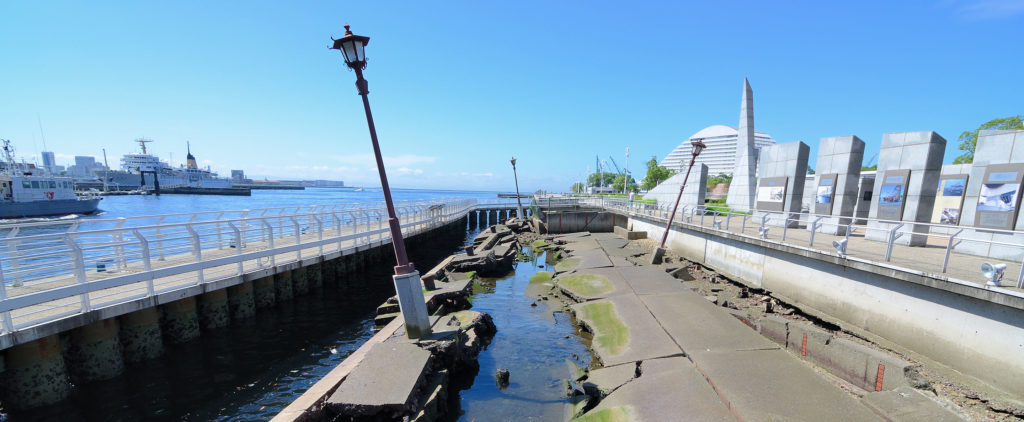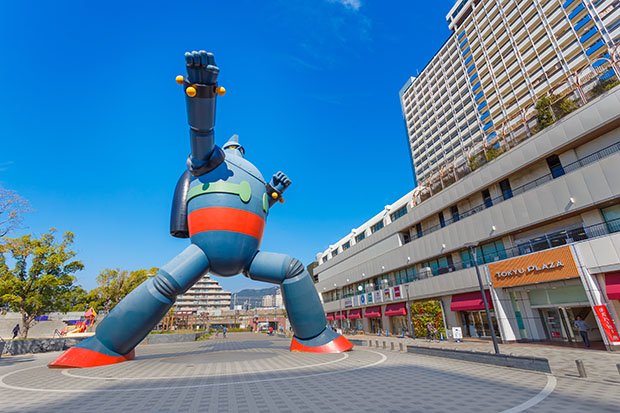
Preserved rubble from the Great Hanshin Earthquake of 1995 at Earthquake Memorial Park in Kobe, Japan.
I remember the day I was told, “Kobe is on fire.”
January 17th marks the 25th year anniversary from Great Hanshin Awaji Earthquake, which killed more than 6,400 people in 1995. Ninety percent were crushed by collapsing houses. I was a teenager living outside Japan at the time. But, now I have moved to Kobe, where my wife’s family lives. Today I have a different feeling than ever before on this anniversary day, which all my Japanese countrymen and women observe.
At magnitude 6.9, the Great Hanshin Awaji Earthquake is among the strongest earthquakes recorded in Japan since World War II.
Japan has flourished as a developed nation offering assistance to others, and many people in Asia and around the world have come to think of Japan as a champion of disaster risk reduction in humanitarian and development work. Frankly, I don’t think we have had that reputation before the Kobe earthquake, after which things started to change.
In fact, 1995 is also said to be the ‘Volunteer Gannen’ (the starting year of volunteering in Japan) when tens of thousands of people offered help to the people in need; there was clearly a humanitarian calling for those who headed to Kobe.
Make your buildings stronger to seismic shocks … make sure people receive proper warning of earthquakes before the quake arrives … ensure elderly people receive care even if they are living alone … make sure there is sense of community restored and even strengthened as soon as possible … and prepare for disasters during non-disaster times. These are among myriad lessons learned from that earthquake. Immediately after initial relief and recovery, Japan started to ensure enforcement of building codes, improved its seismic intensity recording and warning capacity, started to emphasize and focus on longer-term care in addition to immediate emergency assistance. Indeed, many things we Japanese now share as well-known best practice in disaster risk reduction and response readiness, we learned from this enormous tragedy.

This statue, called Gigantor Robot, was built in Kobe in 2010 to commemorate the 15th anniversary of the earthquake. It symbolizes Kobe’s revival and is a guardian from future disasters.
As I ride the bullet train home to Kobe from Tokyo, where I have just met with CWS colleagues, I am thinking about how we, especially young people, tend of think that lives with loved ones will continue forever, even though we know they will not. The reason why I chose to be a humanitarian worker is that I love those I love. My wife, young son and my in-laws; my brother and our parents, our extended families and friends. They all offer a sense of love and care that is priceless in our lives.
Then I imagine a day like January 17, 1995 when loved ones, who could have been my own, were taken away by a force so strong that no one could control it. How would I have reacted and survived had I been there? How did those who were there react and survive? And then I think of my current life’s work, and know full well that there are many people in the world who are forced into such situations every day. And, in this moment, my dream is that everyone cherishes life – and their own lives and loved ones – and can protect who and what is important to them: families and friends, and also their dreams and their community and country.
There is a science of why disasters occur, and there is a science to how we can mitigate the impact. But there is also the humanitarian instinct … and real impact from that. The people of Japan proved this 25 years ago, and people around the world continue to do so every day.
On the 25th anniversary of the Great Hanshin Awaji Earthquake, I am proud to realize that I devote my life and career for this simple important cause: so that as many people as possible can protect their loved ones from future disaster risks and harm.
While I have been a humanitarian worker for 10 years with CWS, I now commit anew to study disaster sciences from those who know more than me, so that I can share information and knowledge with communities at risk from disasters, especially in Asia where both climate change and related migration have put ever more people at such risk. I also commit that I won’t be shy to love what I love, and protect what I want to protect, as I don’t know when my life will be over. I think this sense of caring is essential to humanitarians. It is important to be involved in other people’s lives, and to care about then, especially when they face the toughest and most frightening and threatening moments in their lives.
In 2020, Japan may be far advanced in its disaster risk reduction, mitigation and management capacity. But this is due in no small part to the sacrifice of so many lives that were lost along the way. So, on this very day when more than 6,400 people lost their lives 25 years ago, I would like to pay my sincerest respect to those who are constantly reminding us of lessons we learn, so that the next generation can live in a world that is now safer from natural disasters’ consequence than in the past.
Takeshi Komino is the CWS Country Representative in Japan.
